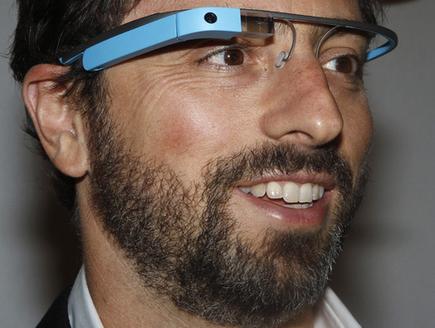
The next generation of CIOs will be digitally savvy from the outset... You must evolve in situ. That requires reskilling
CEO requirements of CIOs have flipped from IT provisioning to digital business visioning. Unfortunately, many mid career CIOs can be held back by some deeply held, but increasingly redundant internal beliefs. If you’re a midcareer CIO, there are ways to liberate yourself from these beliefs to confidently command your future.
A decade ago, CEOs viewed IT as a commodity for parity. They hired and developed a generation of CIOs to manage it that way. Now CEOs have completely changed the way they see things – tech is key to product innovation, revenue winning and competitive advantage.
Digital officers are often hired to drive that great rotation of value purpose and corporate perspective. The arrival of a chief digital officer (CDO) doesn’t mean that CIOs can continue only in an IT "service provider" role. CDOs are usually transient. They’re midterm, provide change management energy and will eventually depart the scene. Ultimately, the CIO role is being redesigned.
Transform into a digital leader mid career
The next generation of CIOs will be digitally savvy from the outset. They’ll be raised differently. You must evolve in situ. That requires reskilling, but it's also about self-confidence in unlearning old ideas. Mature leaders are still required – large enterprises can't safely hand IT control directly to those fresh out of university. But the experienced hands must also apply a beginner's mind.
Introspectively re-examine your personal leadership approach often. Be prepared to ask yourself: "Is it possible that the biggest obstacle to digital progress at my company is … me?"
Don’t be inhibited by false assumptions
Don’t be held back from leading the more strident and progressive moves that companies should be making. Misunderstandings about role, permission, insight, relationships and credentials seem to cloud the judgment of CIOs, leading to corporate hesitancy.
Here are six beliefs you can apply to change your perspective.
1. They don't know
The business doesn't know what it needs from technology. Digital technologies are redefining markets, industries and customer expectations. Technology is capable of breaking barriers and doing things that few would have even imagined a decade ago.
Help set the strategic business agenda for technology use. You possess more combined business need and new technology insight thinking than anyone else in the room. The longer you wait for them to "get it," the higher the risk your company will lose strategic future to sharp digital competitors.
2. Resourcing is choosing
Today's business leaders face a different strategic dilemma — they don't really know how much to invest in the use of technology. Keeping an IT budget to the old bounding percentage of revenue made sense until IT became a way of driving current revenue. Then it became possibly the only way to secure future revenue through digital product innovation.
The new generation of CIOs needs to help make the new resourcing-level choices much more variable. The resources needed to deliver the right digital strategy aren’t fixed — they’re choices. That becomes very apparent once an industry enters a period of digital disruption and incumbents start fearing for their futures.
3. My credentials count
Your starting point really isn't a barrier to success. Digital business is so often an exploration of new technology-enabled business possibilities and of new management techniques required to scale them. Prior experience is of limited value when heading into genuinely unknown territory.

If you’re a technology-background CIO like Sergey Brin of Google or Mark Zuckerberg of Facebook, your computer science mind is at least as useful as any other kind of mind at envisioning future industry and business method possibilities. If you’re a business background CIO like Jack Ma of Alibaba or Brian Chesky of Airbnb, your commercially savvy ability to find unmet customer needs and draw solution creators toward them is at least as useful as any technical insight.
If you don't help your company see and seize its digital business future, you leave market opportunities open for competitors and disruptors.
4. History isn't relevant
Digital business reinvents industries so radically that prior experience can be more of an impediment than an aid. Those with decades of experience may have narrowed their minds. They may think that they know what can’t be done and may be mentally attached to proving they’re right.
Hon Lik invented the electronic cigarette. His invention is massively disrupting the entire tobacco industry. He had no history or experience of that industry. Garrett Camp co-founded Uber, a company that has disrupted the world's taxi service industry — yet he had no prior experience in transportation.
5. My generation sees
If you’re in your 40s, you’ve lived through the arrival of the web, mobile, social and cloud. You understand the implementation pattern of completely new technologies. You can see and understand how those older than you have adjusted to technology shifts. You’ve also seen or directly experienced how small children adapt to digital change.
Digital technology shifts don't only impact young people. LinkedIn isn't for kids — it never was. The median age of sellers on Etsy has been reported as 39. Digital change is not the exclusive domain of the young. See the impact of digital change on all generations.

6. Inaction is risk
Many mid career CIOs weren’t acculturated to taking risk bets on ideas in the hope that they’ll win favour and return. Hence, they don't feel very comfortable moving into a more digital world. That hesitancy is itself a risk to both the CIO and to the enterprise.
If you don't help your company see and seize its digital business future, you leave market opportunities open for competitors and disruptors. Progress becomes nonlinear and it’s harder to catch up.

Mark Raskino is a fellow in Gartner’s CEO and digital business leadership research team. He covers business and technology trends and their implications for business strategy, innovation, business models, leadership and executive relationships. He co-authored the books Digital to the Core (Gartner, 2015) and Mastering the Hype Cycle (Harvard Business Press, 2008).
Learn from your peers: Check out our State of the CIO report on the challenges and concerns of CIOs today. Sign up for CIO newsletters for regular updates on CIO news, career tips, views and events. Follow CIO New Zealand on Twitter:@cio_nz Join us on Facebook.
Join the CIO New Zealand group on LinkedIn. The group is open to CIOs, IT Directors, COOs, CTOs and senior IT managers.
